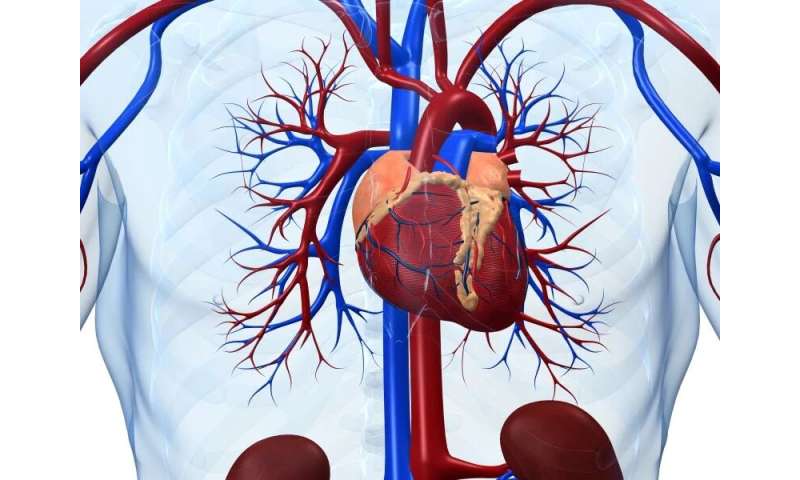
(HealthDay)—During the COVID-19 pandemic, there has been a 38 percent reduction in U.S. cardiac catheterization laboratory ST-segment elevation myocardial infarction (STEMI) activations, according to a research letter published online April 10 in the Journal of the American College of Cariology.
Santiago Garcia, M.D., from the Minneapolis Heart Institute Foundation at Abbott Northwestern Hospital, and colleagues quantified STEMI activations for nine high-volume (>100 primary percutaneous coronary interventions [PPCIs] per year) U.S. cardiac catheterization laboratories from Jan. 1, 2019, to March 31, 2020. March 1, 2020 was identified as the beginning of the “after COVID” (AC) period. Monthly total and average number of STEMI activations for each hospital were compared “before COVID” (BC) and AC.
The researchers found a 38 percent decrease in STEMI activations from the BC period to AC period. Across sites, there was a mean of 23.6 activations per month (combined, >180 STEMI activations) in the BC period, while there was only a mean of 15.3 activations per month in the AC period (138 activations total). The decrease in STEMI PPCI activations may be due to avoidance of medical care due to social distancing or concerns of contracting COVID-19 in the hospital, STEMI misdiagnosis, and increased use of pharmacological reperfusion due to COVID-19.
Source: Read Full Article
